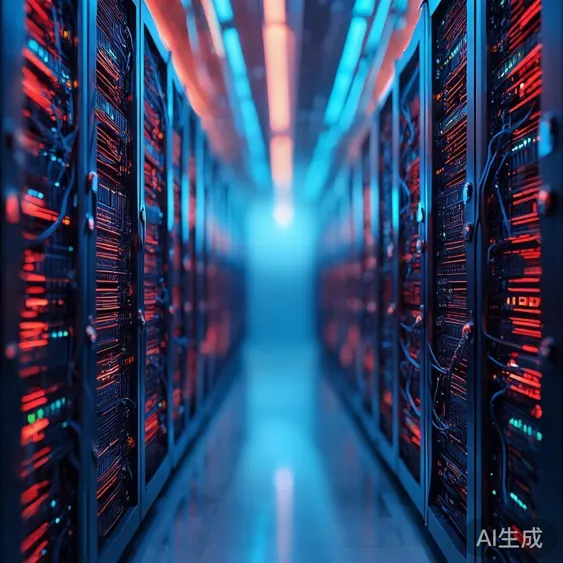OpenAI's First Data Center: Boosting AI Infrastructure

The launch of OpenAI's first data center as part of the ambitious $500 billion Stargate project is an event of great significance for the artificial intelligence sector. With infrastructure being a key enabler for AI development, this initiative underscores the necessity of substantial investments in computing resources. Located in Abilene, Texas, the data center will harness the power of Oracle Cloud infrastructure and Nvidia hardware, catering to the explosive demand and computational needs that AI technologies now require.
OpenAI's collaboration with Oracle and Nvidia is a crucial step in the broader context of a global $2 trillion investment push in AI infrastructure. As the company looks to expand its operational capacity significantly—potentially exceeding one gigawatt, which is enough to power about 750,000 households—this move could catalyze a transformation in how resources are allocated within the tech industry. The integration of state-of-the-art facilities may lead to quicker processing times and enhanced model updates, directly affecting AI applications across various sectors. Furthermore, OpenAI's projection of $13 billion in revenues for this year establishes a solid financial foundation for pursuing such large-scale projects, although potential concerns about over-reliance on Nvidia's technology funding warrant scrutiny.
However, as we evaluate the implications of the Stargate project, we must contemplate the long-term sustainability of these financing models. The arrangement whereby OpenAI commits substantial financial resources to Nvidia, which is also footing part of the construction costs, raises inquiries regarding the dynamics of corporate dependency in the tech ecosystem. What happens if underlying economic trends shift, or if a downturn affects revenue projections? Based on historical precedents such as the dot-com bubble or the 2008 financial crisis, investors should remain cautious; over-leveraging in pursuit of growth has led many tech companies to face severe repercussions. Furthermore, the Stargate initiative may encounter unforeseen regulatory challenges, particularly as it evolves alongside ongoing discussions about data privacy and energy consumption amid climate change pressures.
In conclusion, while the launch of OpenAI's data center is a significant leap forward for the AI sector, it brings with it a complex web of opportunities and risks. The project could herald a new age of innovation, not only by enhancing AI technologies but also by reshaping the American power grid, thereby possibly cementing the nation's position as a leader in AI. Stakeholders—ranging from investors to regulators and consumers—must engage in a two-fold analysis of these developments: recognizing the potential for groundbreaking advancements in AI while remaining vigilant about the structural pitfalls that history has taught us. As we look ahead, the key question remains: will the long-term benefits of such infrastructure outweigh the financial and operational risks involved?
Read These Next

Credit Ratings Send Mixed Signals for Investment Strategies
The article discusses the recent credit ratings update for a company by major agencies, highlighting concerns and the implications for investors and stakeholders.

Alibaba and DeepSeek Unveil New AI Models to Boost Adoption
Alibaba and DeepSeek have launched upgraded AI models to enhance adoption across industries and democratize access to technology.

Leadership Change After Ms. Dai Juy's Passing
The report discusses the significant change in ownership and control of the company following the passing of Ms. Dai Juy and the inheritance of her shares by her son, Mr. Tao Hai. It highlights the potential impacts of the ownership transition on investor sentiment and corporate governance in light of historical precedents.
